'It's become such a community hub': Cork farmers embracing milk vending machines
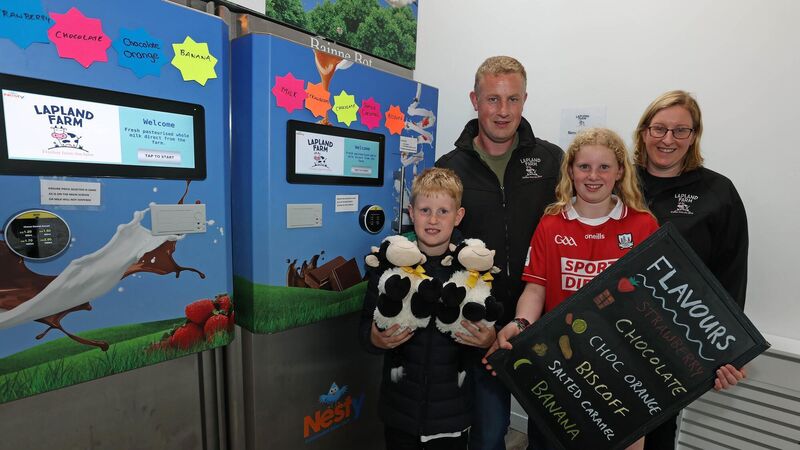
Alex, Melvin, Kate and Heather Smith at Lapland Farm, Milk Hut, Maryborough Hill, Douglas, Cork.
The humble pint of milk... In the last 100 years, how it journeys from cow to kitchen has changed.
From a single cow on a homestead, to the creation of the first dairy co-ops, to Ireland’s reputation as a global leader in dairying innovation, bainne – Ireland’s ‘White Champagne’ – all stems from the work of the dairy farmer.
Cork has long been at the epicentre of this phenomenon.
But in the context of growing milk production, falling milk prices, rising production costs, and concerns about the environmental impact of farming (particularly dairying), it is becoming increasingly difficult to earn a living producing milk just for the co-ops.
A key concern for any farmer is to have a farm in good shape to pass on to the next generation. Many of Cork’s dairy farms are family-owned and operated, often by multiple generations of the same family. The past, present, and future all weigh heavily on their minds.
There is also a simmering feeling that the hard work is simply not paying enough anymore. Farming is a seven days a week, year-round vocation, but it is not unusual for farming families to also work off-site to bring in much needed extra income.
Irish dairy has never been more in demand, so something is broken. Dairy simply isn’t paying.
Milk is back on the move again, literally this time, with the growing trend for offering on-farm and mobile milk vending direct from the source to customers. And people are lapping it up!
I spoke to three Cork dairy farms who have embraced milk vending, about how novelty is giving way to a much bigger positive picture for the future of family dairy farms.
Lapland Farm, Maryborough Hill, near Carrigaline, open 7 days, 9am-9pm
Heather and Melvin Smith are the third generation to farm the 200 acres near Carrigaline. Their herd is 145-strong, annually producing around 950,000 litres. All went to Dairygold until April, when they opened a new milk vending enterprise, Lapland Farm Milk Hut.
“It was a good two years in the planning,” says Heather. “We did the building work ourselves, got approval from the Department of Agriculture, and eventually opened on Easter Monday.” The idea came after watching an episode of RTÉs Ear To The Ground.
“I was working as a quality manager for a feed company, and I immediately thought this was something we could do,” said Heather.
“We have a lot of passing traffic, being close to the city, Douglas, and Carrigaline. Our kids were getting bigger as well, and thought this was something I could run.”
Located on the farm surrounded by fields that the cows graze, it’s no surprise Lapland Farm is a hit on TikTok.
“The feedback has been great, and we have plenty of regular customers coming back again and again,” Heather says. “Customers have been very good taking videos when they come and posting on their social media. The response has taken us totally by surprise!
“People love coming in and looking at the cows. They know the milk has been pasteurised within the day, and they seem to really enjoy buying direct from the source.”
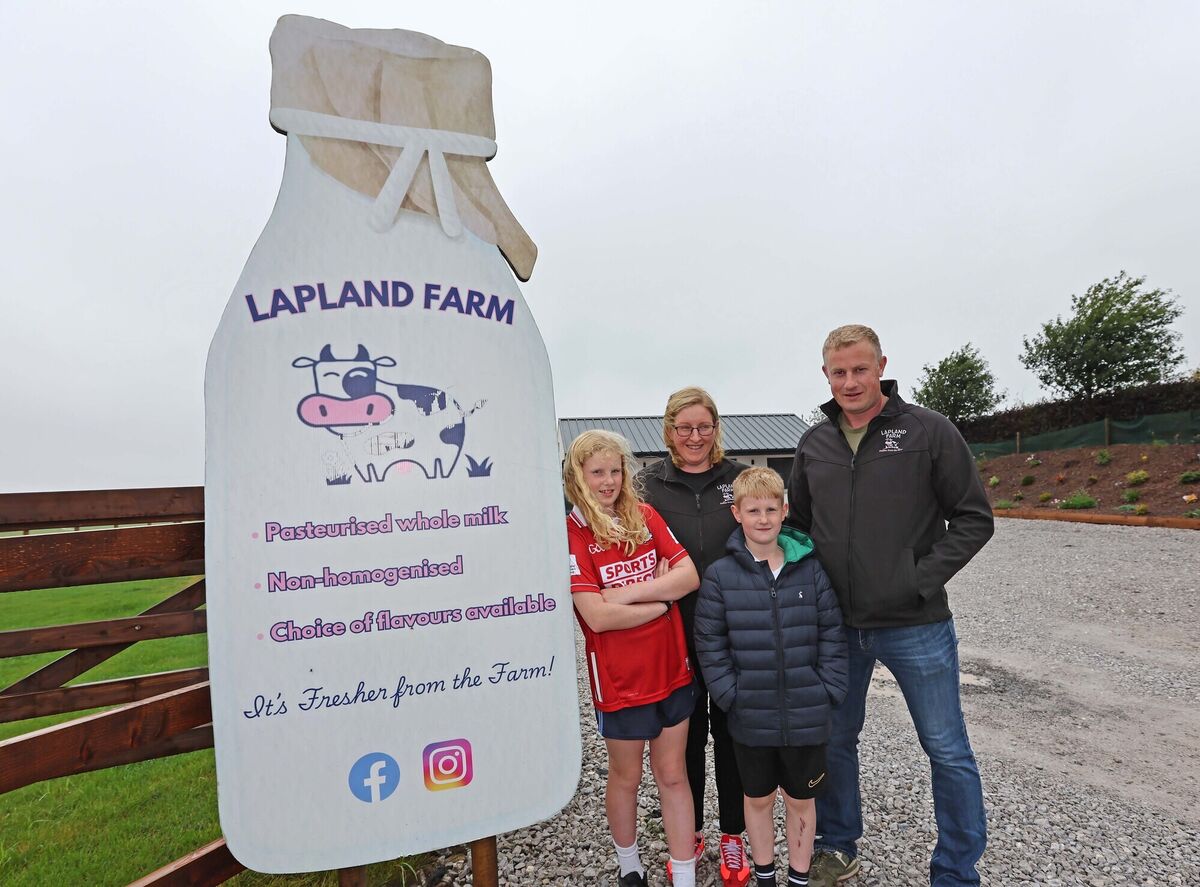
Lapland Farm’s whole milk is lightly pasteurised on site and non-homogenised, so the cream rises. Children can add flavours, which change weekly depending on what’s in demand, including the viral Dubai Chocolate and classics such as strawberry, chocolate and banana.
I ask Melvin what impact this venture has had on him as the farmer at the coal face every day.
“Being able to sell our milk direct this way means we get a much better price per litre,” says Melvin.
“We’re averaging three times more per litre than we get from the co-op. It’s a big difference and makes the work more rewarding.
“I think back to when my father was farming cows here. He had just 50 head of dairy cows and about the same of cattle. The income from that, he was able to support the farm and a family of six. I couldn’t do that today, but I do see potential with the milk vending.
“We’re at our peak now, but we’re selling around 1,500 litres per week through the vending machines. Other farmers are fascinated how we’re selling so much in this way.
“It’s a long process to get to the point where you can sell your own milk. The machines are expensive, there are a lot of hidden costs, and because you’re dealing with food, everything has to be 100% right. You do have to approach it like a proper business, but I think it has all been worth it. I really enjoy meeting the people coming here to buy our milk.”
Location is everything, says Heather. “It suits us because of where we are, but it won’t suit every dairy farm. Location is the biggest consideration, I would say.”
Bó Bainne Úr, Clonakilty
Michael and Sally Kearney are the duo behind the distinctive Bó Bainne Úr mobile milk vending trucks, which do a brisk trade at locations around Clonakilty. They farm 300 cows across 250 acres on three farms, all rented, producing more than 1.5 million litres of milk annually distributed between Lisavaird Co-Op and Irish Yogurts for making yogurts.
“I saw a video on YouTube four years ago, and said, why aren’t we doing this? said Michael. “It took four years to set up, we’ve been going about a year-and-a-half, and it’s been a big success for us.”
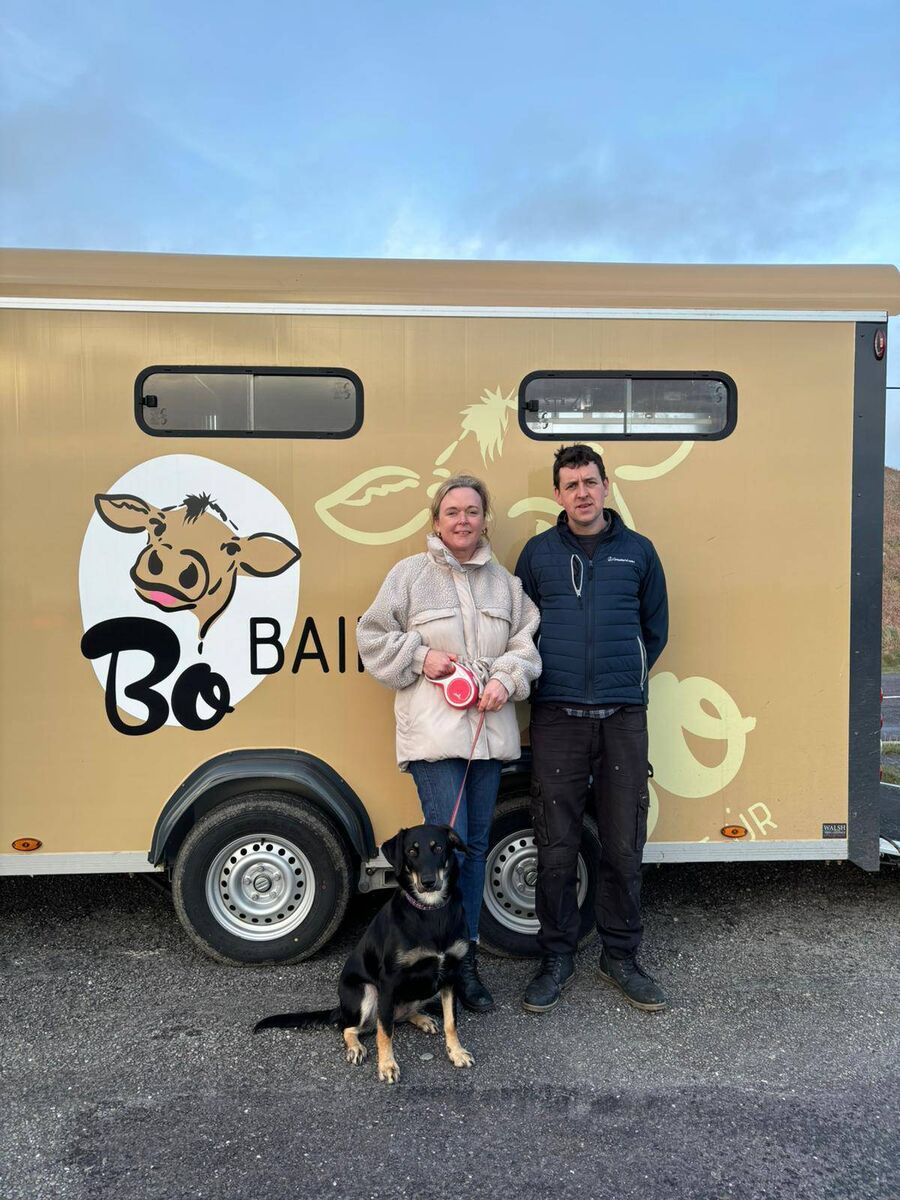
For Michael, the idea came at a pivotal time. “I felt I wasn’t being paid for the work that went into producing the milk. I have been farming since I was eleven years old, but the enjoyment was going 11 of farming,” he says.
By selling direct, not only do Michael and Sally earn more money per litre, but the social element of having Bó Bainne has been just as important.
“For the past five or six years it has been very isolating, but I didn’t realise how isolating it had gotten until I started this business. The amount of people we meet is unbelievable. People have seen us on social media; they see the cows, they see the milk, and they know they are drinking the milk from those cows. There’s a bit of a story behind it, and people love it.
“Our milk is the real deal - whole milk, gently pasteurised with the cream rising to the top. We’ve been consistently selling 800 litres a week, but we hope to be able to double that.”
Michael says the long-term plan is to reduce his herd from 300 to just 80 cows and to sell all the milk directly through Bó Bainne. He says this would produce sufficient income to support the farm and his family and is essential to ensure there is something to pass on to his children.
“I can’t see the next generation doing it; there’s not enough reward in it for them. The processing plants need milk, but if the farmers aren’t there, they won’t have the milk. They need to protect their farmers, and I don’t think they are at the moment.”
The mobile milk truck would suit any type of dairy, says Michael. But you’ll need perseverance. “There is a lot of work, and you have to stick with it. It’s not easy, but if everything was easy, everyone would be doing it!”
Bó Bainne Úr is on the road seven days a week. Check socials for times and locations.
Rostellan Farm, Whitegate
Olivia and Joe Morrissey were the first people in Cork to establish milk vending at their dairy farm in Rostellan.
Things quickly expanded, and they built a new farm shop in an old calving shed, stocking artisan foods and locally grown seasonal vegetables to go with their novel idea.
Since then, a café has been added, they regularly host events and open days, and welcome school and agricultural tourism groups from around Ireland and Europe.
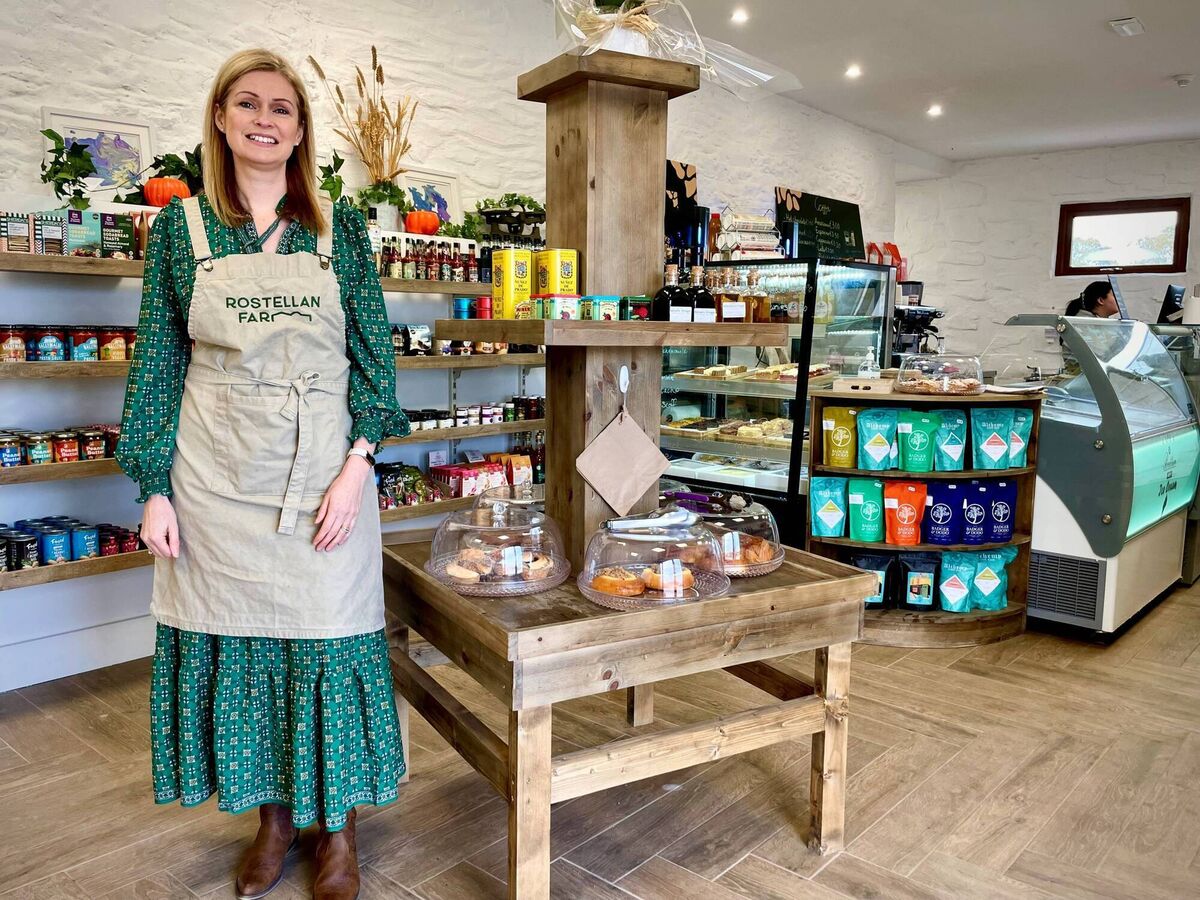
Joe is the third generation of Morrisseys to farm here, tending to a herd of 110 cows on 160 acres, producing 600,000 litres of milk per year, mostly supplied to Dairygold co-op.
The farm shop opened in 2022 and has gone from strength to strength, becoming a vital hub for the Rostellan community and realising the farm’s potential beyond just milk.
“We often tell young kids that there is a cow inside the machine!” jokes Olivia.
“It’s become such a hub in the community that waiting to fill your milk bottle has become our version of a water cooler moment.
“The machines are expensive, so you need to add it all up,” says Olivia; “broaden the ideas for your farm. You don’t have to do a farm shop like we did - it could be anything, but then you’re opening up your farm to ways to diversify that might not have been thought of before.”
Like Lapland Farm and Bó Bainne, the milk price Rostellan receives selling milk through the machines is better than the co-op price.
That extra money, Olivia argues, goes straight back into their local economy.
“It’s made the farm much more viable for our children in the future, too,” says Olivia.
“We’re involved with agritourism and schools visit here – for us, it’s been well worth doing because without it none of this would exist and we wouldn’t have known if it was possible.”
Olivia recently completed the ACORNS programme specifically for women in farming with a particular focus on diversification.
“I don’t think dairy farms have any other choice than to go [diversify],” she said.
“The government wants us to, and subsidies will eventually go too. I would say to the government, be straight with us about what your plans are for farming and let us find a way that suits our farms.
“You must be positive about the future; you have to keep it going because it brings value to the family business. This might not be for everyone, but it has been amazing for us. We find young farmers are really interested in what we’re doing because they want to preserve farming, but they also want a life too.”
From milk vending to a beacon for how family farms can thrive into the future, Rostellan Farm, Bó Bainne Úr and Lapland Farm are all blazing a fearless trail for others to follow.
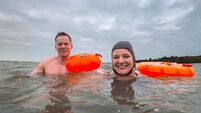
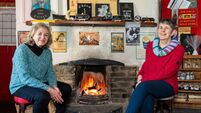

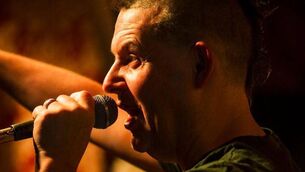



 App?
App?


